This post is also available in: Bosnian
They remain in Krasnodar for several days. The political prisoners are taken to a temporary detention facility and placed in a provisional cell, without basic amenities. Using their bags as pillows, they try to sleep and gather their strength before continuing on an uncertain journey. From there, the prisoners are transferred to various pre-trial detention centers and penal colonies.
This description illustrates the common experience of Crimean political prisoners. Both Crimean Tatars—the peninsula’s indigenous population—and ethnic Ukrainians are targeted by Russia for political reasons, forcibly removed from Crimea, and relocated. According to Ukraine’s Presidential Office, 218 political prisoners are currently held in Crimea, with 159 already transported from the peninsula.
Crimean journalist Amet Suleymanov was taken into custody as a political prisoner, despite his disability and chronic heart disease. In August 2023, he was transferred from Crimean pre-trial detention.
“According to my husband’s stories, he passed through about seven cities. These were different transit points. two days in some places, two weeks in others—in Krasnodar, Ust-Labinsk, even in Mordovia. Healthy people struggled with the transfer, but for Amet, with his chronic illnesses, the transfer was especially difficult to endure,” his wife, Lilya Lumanova, shared.
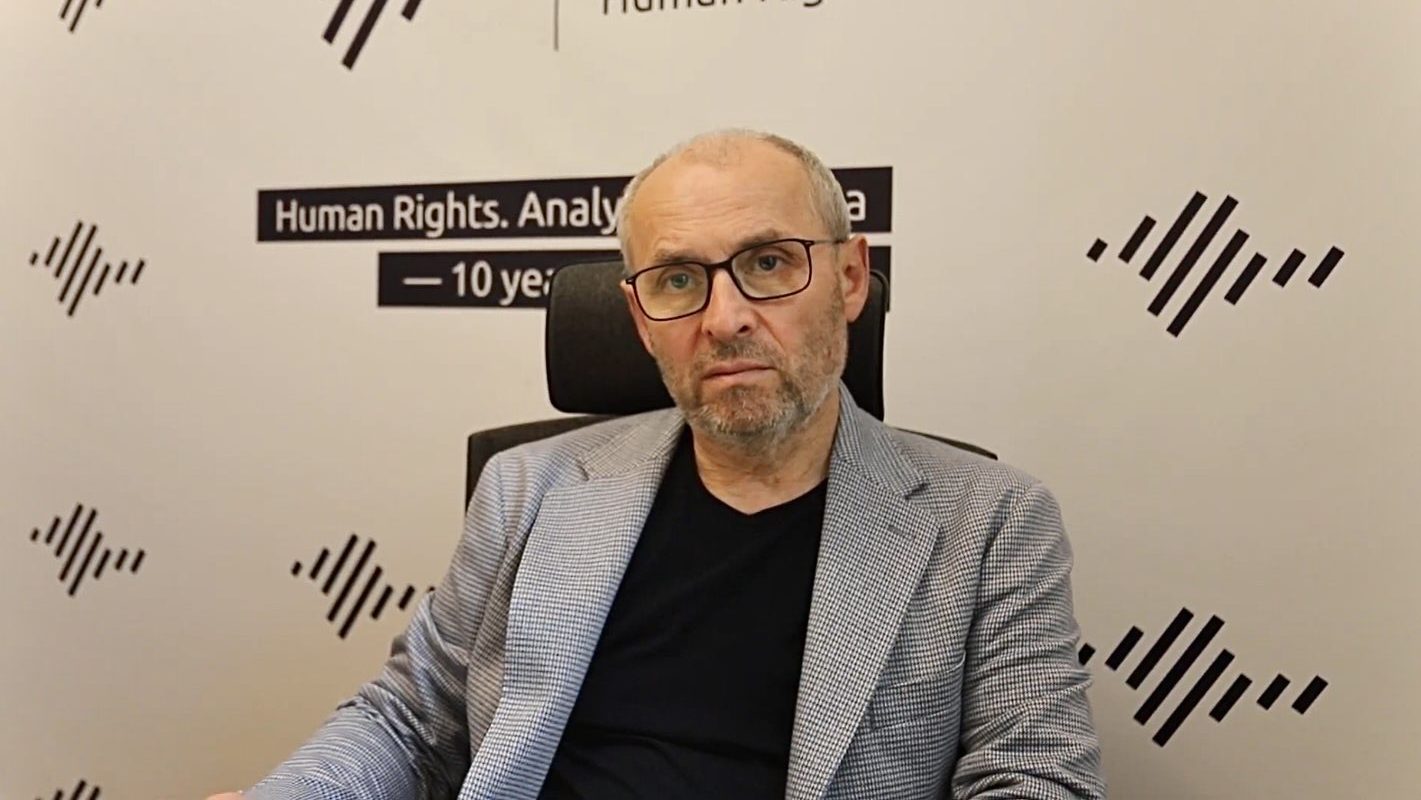 Roman Martynovksy. Photo: Oleksandra Yefimenko
Roman Martynovksy. Photo: Oleksandra Yefimenko
Roman Martynovsky, a lawyer who left Crimea several years ago, now works as a leading expert at the Regional Center for Human Rights in Ukraine.
He considers the transfer of political prisoners to Russia a war crime.
“From a legal point of view, we are talking, first of all, about the violation of international humanitarian law,” Martynovsky explains, adding that the Fourth Geneva Convention prohibits such deportations.
According to the Ukrainian Human Rights Center ZMINA, Ukrainian civilians should serve their sentences in the occupied territory.
“Under no circumstances should Russia deport our citizens to serve sentences in penal colonies, pre-trial detention centers, or prisons on Russian territory,” said Victoria Nesterenko, project manager at ZMINA.
ZMINA’s systematic and long-term work documenting human right violations in Crimea has caught the attention of the Russian Prosecutor General’s Office, which has labeled the Ukrainian organization as “undesirable” and accused human rights defenders of “discrediting the internal and external policies of Russia.”
“Russia has violated human rights and norms of international humanitarian law throughout the entire decade of Crimea’s occupation. The forced transfer of illegally convicted Ukrainian citizens from occupied territories can be considered forced deportation,” Nesterenko adds.
The Office of the Ukrainian President in Crimea, based in Kyiv, also cites the Geneva Conventions, which, in relation to the protection of victims of international armed conflicts, states that parties to the conflict must use all possible means to facilitate the reunification of families separated by armed conflict.
“Thus, deporting people unlawfully deprived of liberty to serve sentences outside the temporarily occupied territory of the Autonomous Republic of Crimea can also be considered family separation,” the office stated.
The Geneva Conventions and UN Charter are the only international treaties in which all world governments still participate. Crimean lawyer Emil Kurbedinov, who represents several political prisoners, says that although he reiterates the applicability of the Fourth Geneva Convention at all his trials, it does not influence decisions in favor of defendants.
“We state this constantly and even prepare relevant claims to international courts for their consideration, seeking adequate, fair decisions on these ‘abductions.’ That’s the only term for it,” Kurbedinov said.
Russia Ignores Judicial Rulings
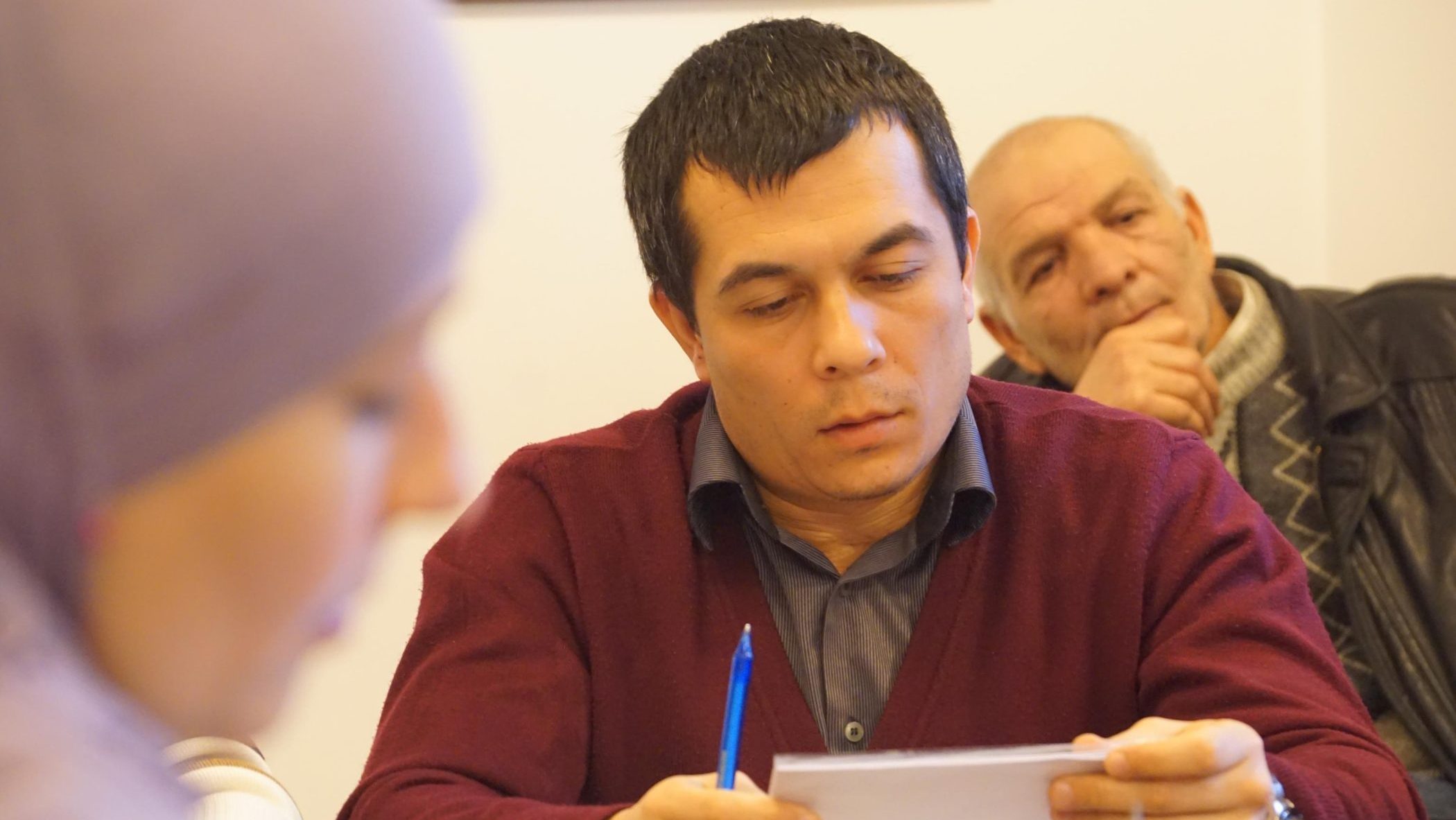 Emil Kurbedinov. Photo: Anton Naumliuk
Emil Kurbedinov. Photo: Anton Naumliuk
The Ukrainian Prosecutor’s Office of the Autonomous Republic of Crimea and Sevastopol investigates the forced transfer of prisoners from Crimea. In 2017 and 2021, Ukrainian human rights activists and agencies submitted evidence to the International Criminal Court (ICC) about the deportation of approximately 500 prisoners. These unlawful actions by Russia were classified as a crime against humanity under Article 7 of the Rome Statute of the ICC.
Alexander Pavlichenko, Head of the Ukrainian Helsinki Union, noted that Ukrainian prisoners in Russia not only endure the severance of family ties but also suffer from a lack of medical care and inability to protect their rights due to the inefficacy of the Russian legal system.
British legal expert Wayne Jordash, who advises Ukrainian investigators, notes that after Russia’s full-scale invasion of Ukraine in 2022, the ICC began investigating all war crimes committed in the country since 2013. However, crimes perpetrated by the Russian occupation authorities in Crimea remain a lower priority in investigations.
“The Transfer of political prisoners from Crimea and their placement in pre-trial detention facilities, prisons, maximum-security colonies within Russia violates both international law and the national law of the Russian Federation itself,” says Crimean lawyer Emil Kurbedinov.
Despite this, Russian authorities treat the transfer of prisoners from Crimea as a lawful execution of criminal punishment, claiming that all persons residing in Crimea at the time of the 2014 referendum on autonomy are Russian citizens.
Kurbedinov also highlights the story of Crimean human right defender Riza Izetov, sentenced to 19 years in prison by a Russian court. The Federal Penitentiary Service transferred Izetov to Yakutia, 9,000 thousand kilometers from his home.
“First of all, family legal rights are being violated. It’s an enormous hardship for relatives—the wives of political prisoners, children, elderly parents—to go to such remote areas for visits, which they are entitled to. Sometimes, it isn’t even possible. For families with children, there are also significant financial expenses,” Kurbedinov said.
Riza Izetov’s mother, who has cancer, submitted a request to the Federal Penitentiary Service to transfer her son closer to home. She last saw him six years ago, on the day he was arrested in March 2019.
“I am in remission, but I don’t travel far from home. I have a weak immune system and am afraid of infections. I have a feeling that I won’t live to see him again. I pray to the Almighty to grant me the time to see my son in this world,” shared the prisoner’s mother.
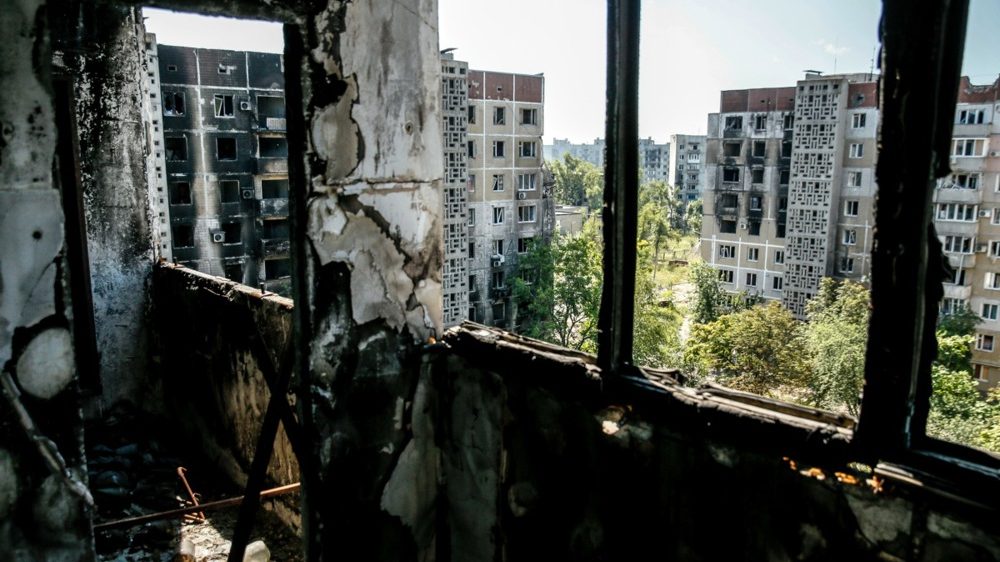 War devastation in Ukraine. Photo: EPA-EFE/Oleg Petrasyuk
War devastation in Ukraine. Photo: EPA-EFE/Oleg Petrasyuk
Victoria Nesterenko from ZIMA points out that not every family can visit Russian penal colonies, citing the example of Irina Danilovich, who was sentenced to seven years in prison by the Russian court in Crimea.
“Irina Danilovich has health problems. Her father was, in fact, her voice, fighting constantly to ensure people knew about her. He spoke to the public, to human rights defenders, to the international community,” Nesterenko says.
Since his death, however, there is almost no one to help Irina. Her mother, now 76, is seriously ill and cannot make the trip to the penal colony in Zelenokumsk.
Lawyer Emil Kurbedinov says that he and his colleagues in Crimea have filed claims in general jurisdiction courts seeking to have political prisoners transferred closer to Crimea.
He believes that this is legally possible: the Criminal-Executive Code of the Russian Federation allows for prisoner relocation in cases of illness, personal safety concerns, or other exceptional circumstances.
“There are legal precedents from the Constitutional Court and the Supreme Court of the Russian Federation recognizing that the inability of a convicted person to maintain family ties during imprisonment is one such exceptional circumstance,” Kurbedinov explains.
He reported that representatives have also filed similar administrative claims against the Federal Penitentiary Service for other political prisoners, such as activists Arsen Abkhairov and Eskender Abdulganiev from the Krasnogvardeisky district of Crimea, Bakhchisarai residents Server Zekiryaev and Marlen Asanov, and journalist Remzi Bekirov from Simferopol. The Zamoskvoretsky District Court in Moscow ruled in favor of Abkhairov’s claim, but the Federal Penitentiary Service did not enforce the decision.
“We are at the stage of considering these claims and hope we can at least make it possible for our clients to be hundreds of kilometers—as opposed to thousands of kilometers—from home, from Crimea and their families,” Kurbedinov explains.
Martynovsky, however, cautions that even if Crimean lawyers win in Russian courts, it does not influence cases pending before the ECHR or UN Human Rights Committee.
“The Abhairov case can serve as an example, but there is little positive impact. Why? Because the Russian Federation uses different means to sidestep or ignore court decisions,” said the human rights defender.
He also emphasized that there has never been a case of a political prisoner being returned to Crimea.
“They may transfer them to another facility, but not close to home, not in Crimea”, – Martynovsky concluded.
Arsen Abkhairov’s “Unjustified” Rejection of Transfer
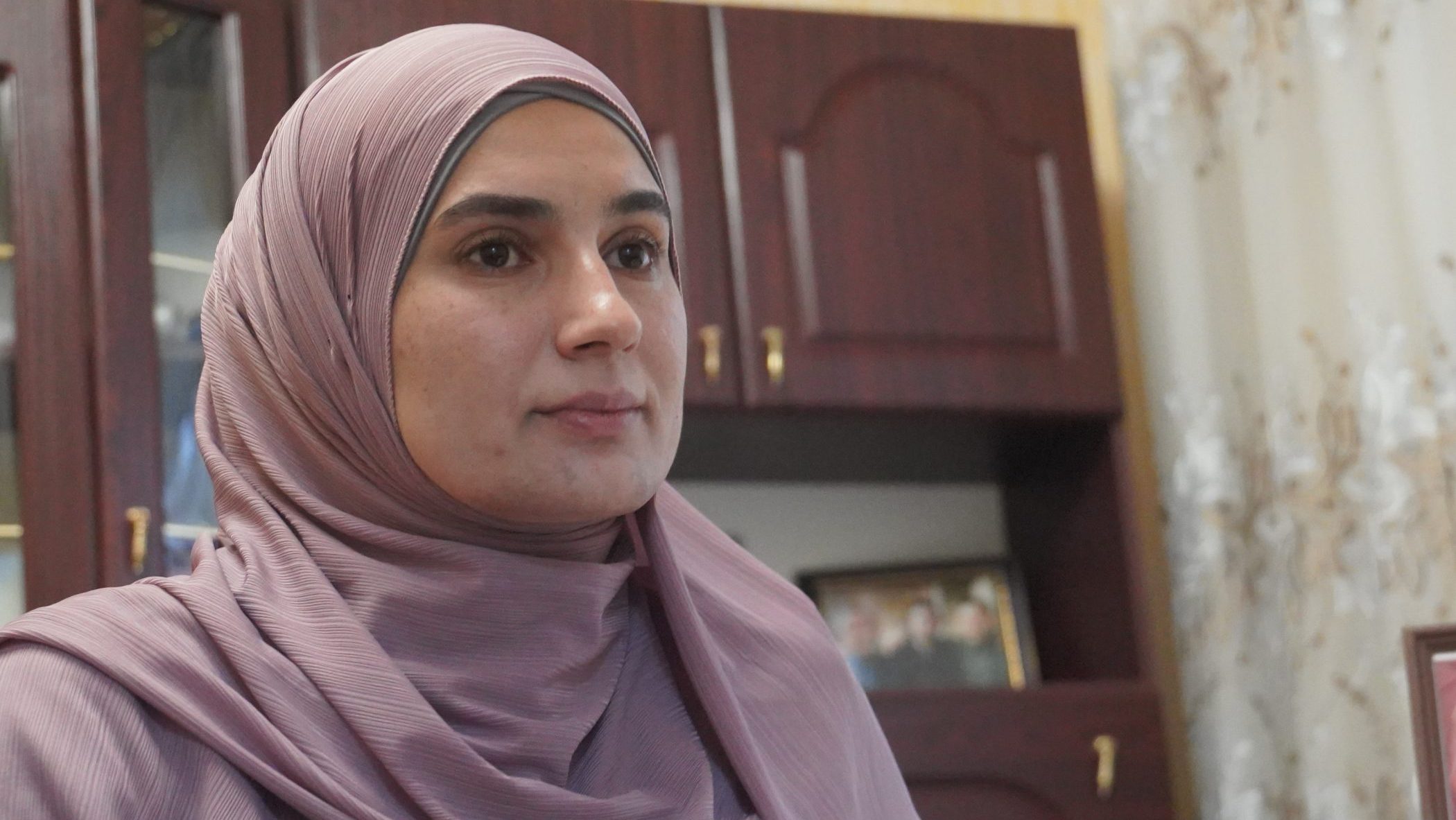 Azize Abkhairova. Photo: BIRN BiH
Azize Abkhairova. Photo: BIRN BiH
Arsen Abkhairov, a Crimean Tatar detained under Article 205.5 of the Russian Criminal Code, was taken from Crimea in 2019 following the conclusion of a preliminary investigation. He was accused of participating in the activities of political party Hizb ut-Tahrir, which was banned by Russia in 2003. Court hearings were held in the Russian territory of Rostov-on-Don.
“My husband was actively involved in the life of his people, in the lives of political prisoners. Because of this, his beliefs and opinions, he fell under the steamroller of the repressive machine. Our family expected the conviction, having followed similar cases, and we were prepared for him to be convicted. But for us, the 13 years in a colony felt like a bolt from the blue,” said his wife, Azize Abkhairova.
After the verdict, Abkhairov was initially held in a pre-trial detention center in the city of Novocherkassk. Once the appeal appeal process was completed and the sentence finalized, he was transferred 5,000 kilometers from Crimea to Prison No. 2 in Yeniseisk, Krasnoyarsk region. He served the first part of his sentence there from 2022 until early 2023.
Since January 2024, Abkhairov has been serving the second part of the sentence in Penal Colony No. 8 in Ulan-Ude, Republic of Buryatia, 7,000 kilometers from his native Crimea.
“I cannot even imagine the possibility of traveling 7,000 kilometers with two young children. My mother has certain chronic heart diseases and high blood pressure. Also, transportation costs are huge,” Azize laments.
As soon as he was transferred to Yeniseisk, both she and her husband began submitting requests to the Federal Penitentiary Service to transfer him to a colony closer to home. However, the responses they received from the government agency were typical.
“They referred to the article under which my husband is being held and claimed it is not subject to revision. According to this article, people are transferred only at the discretion of the Federal Penitentiary Service. And my husband filed a lawsuit in the Zamoskvoretsky Court of Moscow against one of these responses,” Azize added.
After months of litigation, the court ruled in December 2022 that the Federal Penitentiary Service’s refusal to transfer the political prisoner closer to home was unlawful. However, the government agency disregarded the court’s decision and did not comply.
For Abkhairov’s family, the journey to Buryatia, where he is currently imprisoned, is very long. Due to the war, there are no flights from Crimea, forcing them to first travel by land to Sochi or Moscow and then fly to Ulan-Ude. The trip takes at least a day and costs around 100 thousand rubles ($995) per family member.
Azize filed another lawsuit against the Federal Penitentiary Service and, in a September 2004 ruling, the Krasnogvardeisky District Court of Crimea also recognized the refusal to transfer a political prisoner as “unjustified.”
The court noted that in early autumn, the Federal Penitentiary Service “had the option” to transfer the political prisoner to the Southern Federal District of Russia, which includes Crimea, the Republic of Adygea, Arkhangelsk, Volgograd, and Rostov regions. However, none of these locations were offered as alternatives for Abkhairov’s imprisonment.
The court found that the family’s arguments about high travel costs and long duration of the trip to Buryatia were valid, indicating a potential “violation of the rights of the convicted person and his family members to maintain family ties.”
In its September decision, the court partially granted Azize’s claim, declaring the Federal Penitentiary Service’s refusal to transfer her husband unlawful and ordering the state agency to re-examine Abkhairov’s transfer request within a month.
At the time of the publication, it is unknown whether the prison had complied with the new decision.
Ukrainians Taken to Enemy Territory
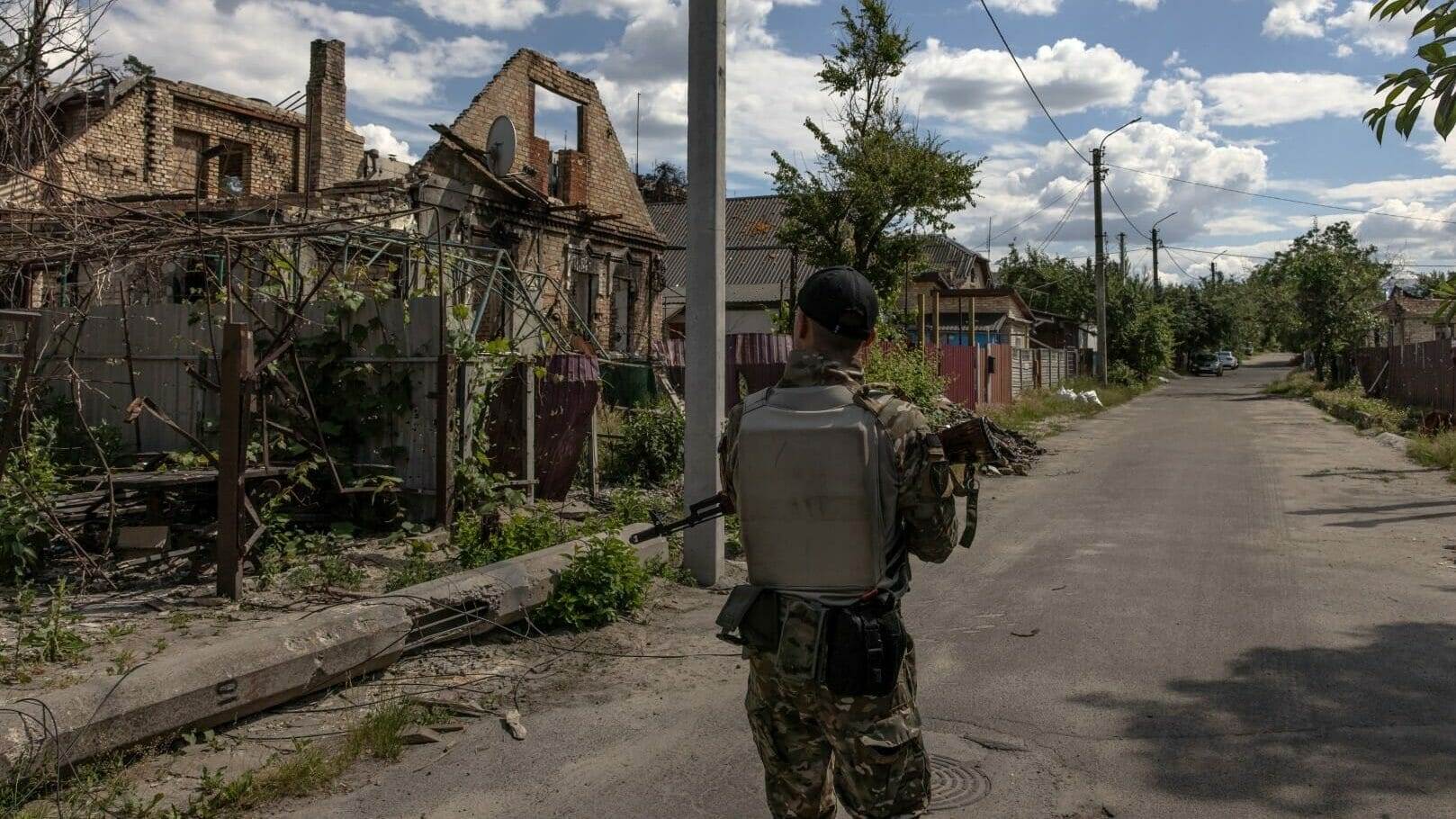 A Ukrainian soldier walks past damaged houses in Irpin, on June 16, 2022. Photo: EPA
A Ukrainian soldier walks past damaged houses in Irpin, on June 16, 2022. Photo: EPA
Roman Martynovsky also emphasizes the relevance of the International Covenant on Civil and Political Rights, adopted by a UN General Assembly resolution and ratified by 147 governments as of 2001. . He sees the transfer of prisoners as a violation of the part of the Covenant that deals with freedom of movement and choice of residence, saying that the transfer was carried out in a discriminatory manner.
“We qualify these actions as violations of Article 12 of the International Covenant concerning the right to freedom of movement and freedom to choose one’s place of residence. At the same time, we say that this movement is the result of a discriminatory approach, which violates Article 26 of the same Covenant on equality before the law and non-discrimination,” Martynovsky noted.
He asserts that the transfer of Ukrainian prisoners from Crimea to Russia and the internal transfer of Russian prisoners are “completely different situations,” even it comes to convictions for political reasons.
“The person finds himself in another country. He finds himself in a hostile environment, completely under the authority of the state, which committed an act of aggression. He has to demonstrate loyalty to this government and, at the very least, cannot openly express his views on the situation in Ukraine or the Russian Federation’s actions,” Martynovsky states.
According to Martynovsky, dozens of individual complaints have also been filed with the European Court of Human Rights regarding Russia’s illegal transfer of Crimean political prisoners.
“In many cases, the court has actually completed its review of the case and is deliberating its decision,” said Martynovsky.
Ukrainian human rights defenders argue that the forced transfer of political prisoners violate Article 4 of the Fourth Geneva Convention, which concerns the protection of human rights and fundamental freedoms. The article states that “no one may be deported through individual or collective measures from the territory of the state of which they are a citizen.”
“Additionally, in some complaints, we also raised the issue of discrimination,” Martynovsky added, noting that, in some cases, his colleagues have qualified this as a violation of the article that prohibits state interference in a person’s private and family life, home and correspondence.
At the same time, Ukrainian lawyer and international law expert Sergey Zayats, who represents the residents of Crimea before the European Court of Human Rights, stated that complaints against Russia can only relate to events that occurred before September 16, 2022.
On that day, Russia ceased to be a party to the European Convention on Human Rights. Zayats explained that the European Court of Human Rights will make decisions on individual complaints by the residents of Crimea only after considering Ukraine’s interstate complaint against Russia regarding human rights violations in Crimea.


